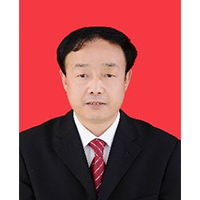
Speaker

Prof. Antonio De Maio
IEEE Fellow
University of Naples Federico II, Italy

Reasearch Area: Radar Signal Processing, Waveform Diversity, Cognitive Radar, Optimization Theory Applied to Radar Signal Processing, Electronic Defense
Prof. Antonio De Maio’s research interest lies in the field of statistical signal processing, with emphasis on radar signal processing, waveform diversity, cognitive radar, optimization theory applied to radar signal processing, and electronic defense.
Prof. De Maio is a Fellow of IEEE, a Distinguished Lecturer for the IEEE AES (biennium 2020-2021), and a co-author (with A. Farina and S. Haykin) of the book “The Impact of Cognition on Radar Technology”, Scitech Publishing, Radar, Sonar & Navigation, 2017.He is the recipient of the 2010 IEEE Fred Nathanson Memorial Award as the young (less than 40 years of age) AESS Radar Engineer 2010 whose performance is particularly noteworthy as evidenced by contributions to the radar art over a period of several years, with the following citation for “robust CFAR detection, knowledge-based radar signal processing, and waveform design and diversity”. He is the corecipient of the 2013 best paper award (entitled to B. Carlton) of the IEEE TRANSACTIONS ON AEROSPACE AND ELECTRONIC SYSTEMS with the contribution “Knowledge-Aided (Potentially Cognitive) Transmit Signal and Receive Filter Design in Signal-Dependent Clutter”.
Antonio De Maio received the Dr.Eng. (Hons.) and Ph.D. degrees in information engineering from the University of Naples Federico II, Naples, Italy, in 1998 and 2002, respectively. From October to December 2004, he was a Visiting Researcher with the U.S. Air Force Research Laboratory, Rome, NY, USA. From November to December 2007, he was a Visiting Researcher with the Chinese University of Hong Kong, Hong Kong. He is currently a Professor with the University of Naples Federico II.

Prof. Steven Guan
Professor and the Director for Research Institute of Big Data Analytics
Xi'an Jiaotong-Liverpool University (XJTLU), China

Reasearch Area: Machine Learning, Computational Intelligence, Big Data Analytics, Mobile Commerce, Modeling, Networking, Personalization, Security, Pseudorandom Number Generation
Prof. Guan’s research interests include: machine learning, computational intelligence, big data analytics, mobile commerce, modeling, networking, personalization, security, and pseudorandom number generation. He has published extensively in these areas, with 130+ journal papers and 180+ book chapters or conference papers. He has chaired, delivered keynote speech for 80+ international conferences and served in 180+ international conference committees and 20+ editorial boards.
Steven Guan received his BSc. from Tsinghua University and M.Sc. (1987) & Ph.D. from the University of North Carolina at Chapel Hill. He is currently a Professor and the Director for Research Institute of Big Data Analytics at Xi'an Jiaotong-Liverpool University (XJTLU).He served the head of department position at XJTLU for 4.5 years, creating the department from scratch and now in shape. Before joining XJTLU, he was a tenured professor and chair in intelligent systems at Brunel University, UK.
Prof. Guan has worked in a prestigious R&D organization for several years, serving as a design engineer, project leader, and departmentmanager. After leaving the industry, he joined the academia for three and half years. He served as deputy director for the ComputingCenter and the chairman for the Department of Information & Communication Technology. Later he joined the Electrical & ComputerEngineering Department at National University of Singapore as an associate professor for 8 years.
There are quite a few inventions from Prof. Guan including Generalized Minimum Distance Decoding for Majority Logic Decodable Codes, Prioritized Petri Nets, SelfModifiable Color Petri Nets, Dynamic Petri Net Model for Iterative and Interactive Distributed Multimedia Presentation, Incremental Feature Learning, Ordered Incremental Input/Output Feature Learning, Input/Output Space Partitioning for Machine Learning, Recursive Supervised Learning, Reduced Pattern Training using Pattern Distributor, Contribution Based Feature Selection, Incremental Genetic Algorithms, Incremental Multi-Objective Genetic Algorithms, Decremental Multi-objective Optimization, Multi-objective Optimization with Objective Replacement, Incremental Hyperplane Partitioning for Classification, Incremental Hyper-sphere Partitioning for Classification, Controllable Cellular Automata for Pseudorandom Number Generation, Self Programmable Cellular Automata, Configurable Cellular Automata, Layered Cellular Automata, Transformation Sequencing of Cellular Automata for Pseudorandom Number Generation, Open Communication with Self-Modifying Protocols, etc.

Prof. Kejie Huang
IEEE Senior Member
Zhejiang University, China

Reasearch Area: Low-Power Memory Processor, Optoelectronic Coupled Computing, Deep Learning and Hardware Acceleration, Intelligent Sensing, Compression Sensing, Video and Image Generation
Prof. Huang’s main research directions include low-power memory processor, optoelectronic coupled computing, deep learning and hardware acceleration, on-chip network hardware architecture, FPGA hardware architecture, intelligent sensing, video and image compression, compression sensing, video and image generation, medical data analysis, etc.
At present, Prof. Huang has published more than 60 high-level academic papers in international journals and conferences, which include IEEE TCAS-I, IEEE TCAS-II,IEEE TCSVT, IEEE TMM, IEEE TVLSI,IEEE TNANO, Advanced Material, EDL, AMI, SMALL和AAAI, WACV, SOCC, ISCAS, etc. and holds 4 U.S. patents, 4 U.S. patent applications, more than 30 Chinese patents and 3 PCTs. He is IEEE Senior Member, the Associate Editor of IEEE TCASII, and the reviewer of many international journals such as Nature Communications, IEEE TCAS, TVLSI, EDL.
Kejie Huang received the B.Sc degree and M.Eng degree from the College of Information Science and Electronic Engineering, Zhejiang University, Hangzhou, China, in 2003 and 2006, respectively, and the Ph.D degree from the Department of Electrical Engineering, National University of Singapore, Singapore, in 2014. He has been a Principal Investigator with the College of Information Science and Electronic Engineering, Zhejiang University (ZJU), Hangzhou, China, since 2016. Prior to joining ZJU, he spent five years in the industry including Samsung, San Jose, CA, USA, and Xilinx, San Jose, CA, two years with the Data Storage Institute, Agency for Science Technology and Research (A*STAR), Singapore, and another three years with the Singapore University of Technology and Design (SUTD), Singapore.
 Prof. Yulin Wang
Prof. Yulin Wang
Wuhan University, China
Reasearch Area: Image and Video Processing, Digital Rights Management, Information Security, Intelligent System, E-Commerce, IoT, Code Clone
Prof. Wang's research interests include digital rights management, digital watermarking, multimedia and network security, and signal processing. In recently 10 years, Prof. Wang has published as first author 3 books, 40 conference papers and 45 journal papers, including in IEEE Transactions and IEE proceedings and Elsevier Journals.
Prof. Wang served as editor-in-chief for International Journal of Advances in Multimedia in 2010. He served as reviewer for many journals, including IEEE Transactions on Image Processing, IEEE Signal Processing Letters, Elsevier Journal of Information Sciences. He served as reviewer for many research funds, including National High Technology Research and Development Program of China ( ‘863’ project).
In recently 10 years, Prof. Wang served as chairman of more than 10 international conferences, and keynote speakers in more than 20 international conferences. Besides UK, he visited US, France,Italy, Portugal,Croatia, Australia, Germany, korea, Ireland,Singapore, Malaysia, Japan, and Hong Kong. In addition, Prof. Wang was the external PhD advisor of Dublin City University, Ireland during 2008-2010 and he has been appointed as the deputy director of Hubei provincial science and technology commission (CAPD) since 2014.
Yulin Wang is a full professor and PhD supervisor in International School of Software, Wuhan University, China. He got PhD degree in 2005 in Queen Mary, University of London, UK. Before that, he has worked in high-tech industry for more than ten years. He has involved many key projects, and hold 8 patents. He got his master and bachelor degree in 1990 and 1987 respectively from Xi-Dian University, and Huazhong University of Science and Technology(HUST), both in China.
 Prof. Xincheng Ren
Prof. Xincheng Ren
Yanan University / School of Physics and Electronic Information

Reasearch Area: Characteristics of Propagation and Scattering of Electromagnetic (Optical) Wave in Complex Systems and Random Medium, Computational Electromagnetics, Theory and Technology of Wireless Communication
Prof. Ren's research interests include propagation and scattering of electromagnetic (optical) waves in complex systems and random medium, computational electromagnetics, theory and technology of wireless communication. He has authored over 200 papers.
Xincheng Ren is a member of IEEE, a senior member of the chinese institute of electronics, a senior member of the chinese institute of communications, a member of the physics teaching research association of the chinese education society, a member of the northwest subcommittee of the physics teaching steering committee of the education ministry, a member of the electromagnetic scattering and inverse scattering professional committee of the antenna branch of the chinese institute of electronics, a member of the "Smart Ecology" professional technology group of the internet of things committee of the china institute of communications, executive director of the Shaanxi provincial physics society, executive director of the Shaanxi provincial signal processing society, director of the Shaanxi provincial institute of communications, a member of the high performance computing professional committee of Shaanxi computer society, chairman of Yan'an physics society, executive vice chairman of Yan'an information network security association.
He was selected into the science and technology expert database of the China institute of communications. He is an evaluation expert of the National Natural Science Foundation of China, an evaluation expert of the State Council's degree and postgraduate education dissertation, and an evaluation expert of scientific research projects of the Science and Technology Department of Chongqing City, Jiangxi Province, and Anhui Province.
Prof. Ren is currently a professor of the school of physics and electronic information, Yanan University, the director of the Shaanxi Key laboratory of intelligent processing for energy big data, the director of the Shaanxi electronic information experimental teaching demonstration center, the deputy director of the Shaanxi physics experimental teaching demonstration center, and the director of the Yanan Key laboratory of information processing and measurement and control technology. He used to serve as the secretary of teaching and research, associate dean, and dean of the school of physics and electronic information, the director of the institute of radio waves and the director of the institute of information and communication engineering of Yanan University.
 Prof. Dr. Fuyi Li
Prof. Dr. Fuyi Li
College of Information Engineering, Northwest A&F University, China

Reasearch Area: Machine learning, Data Mining, Bioinformatics
Prof. Li's current research interests are large-scale data mining, machine learning, bioinformatics, and computational biomedicine. More specifically, his research focuses on machine learning, sequence analysis, structural analysis, DNA/RNA modifications and protein post-translational modification prediction, and antimicrobial resistance phenotype prediction. He has extensive expertise, skill sets, and experiences in sequence analysis, structural bioinformatics, machine learning-based modelling, and biomedical data analytics.
Prof. Li has published 54 research papers (46 are JCR Q1 journal papers), including 13 first-author papers, 9 corresponding author papers, and 7 co-first author papers in top-tier bioinformatics peer-reviewed journals, such as Briefings in Bioinformatics (23 papers), Bioinformatics (8 papers), BMC Bioinformatics (2 papers), and Genomics Proteomics & Bioinformatics (1 paper). Prof. Li's Google Scholar citation is 2437, h-index 24 and i10-index 36 (Aug 2022). Among his publications, 11 papers were selected as Clarivate Highly Cited Paper and his publications have been cited in prestigious peer-reviewed journals such as Cell, Nature Chemical Biology, PNAS, Nucleic Acid Research, Bioinformatics, and Briefings in Bioinformatics.
Fuyi Li was initially trained in software engineering during bachelor's and master's studies. His previous research mainly focused on the development of data mining algorithms. Since he commenced his PhD research at Monash University in 2017, he have experienced a dramatic transition from a computer scientist to a computational biologist in terms of his knowledge structure and way of thinking.
Prof. Li used every source he could to build his understanding of the complex biological problems and proposed data-driven machine learning-based approaches to address these problems. Since his PhD conferral in 2020/05, he joined the Peter Doherty Institute for Infection and Immunity and worked as a bioinformatics research officer (Level B). After that, Prof. Li was promoted to a full professor position on 2022/06 at the College of Information Engineering, Northwest A&F University. He can seamlessly communicate with both biologists and computer scientists and bridge the gap between them, to accurately describe the biological problem and propose appropriate ways to address it.